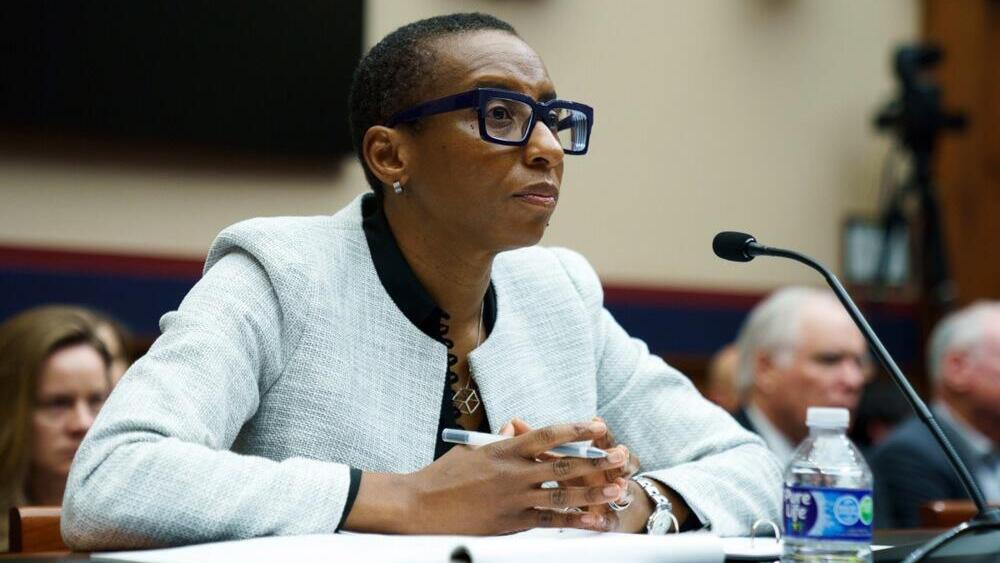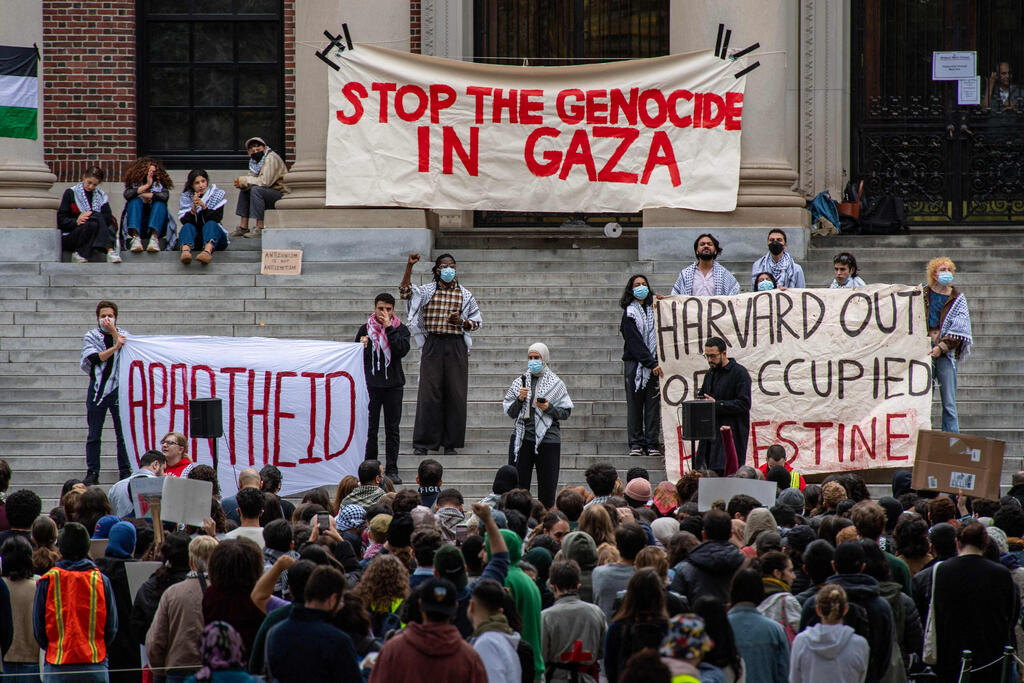Getting your Trinity Audio player ready...
Presidents of leading American universities, who testified at a hearing in the U.S. House of Representatives on their response to the rise in hate crimes and antisemitism on campuses since the beginning of the war in Gaza, had a hard time deciding whether “calling for the genocide of Jews” is bullying and harassment according to their school's codes of conduct.
More stories:
For five hours, the presidents of Harvard University, the University of Pennsylvania (UPenn), and MIT were asked to answer lawmakers' questions during the Committee on Education & the Workforce hearing on “Holding Campus Leaders Accountable and Confronting Antisemitism,” about the actions they take against students involved in antisemitic activities, how the recruitment procedures of the institutions ensure diverse perspectives among the faculty, and how they ensure safety on campus.
At the beginning of the discussion, the lawmakers told the university presidents that while answering their questions they should think about students on campuses who were attacked and threatened and who are seeking their help to ensure their safety.
While the representatives who initiated the hearing said that its main focus is combating antisemitism, the presidents said that they also see a rise in Islamophobia and are working to combat both forms of hatred equally.
Republican New York Rep. Elise Stefanik, a Harvard alumna herself, clashed with the university’s president, Claudine Gay, and asked her if Harvard would take meaningful steps against students who use the public expression "from the river to the sea Palestine will be free" or "intifada." According to Stefanik, these expressions push for violence against Israel and the murder of Jews.
Gay responded that "this kind of language is thoughtless, reckless, and hateful." But when Stefanik pressed and asked whether “calling for the genocide of Jews” is bullying and harassment according to the university's code of conduct and if such hate speech is allowed at Harvard, Gay answered: "It is at odds with the values of Harvard, but we embrace a commitment to free expression even of views that are objectionable, offensive and hateful.”
Gay explained that when speech turns into actions that violate the institution's policies against violence and harassment or incite violence, the university takes action. Stefanik was not satisfied, and told Gay: “This is why I have called for your resignation.”
MIT President Sally Kornbluth, who is Jewish, was asked if a call for "the genocide of Jews" violates the institution's code of conduct, and she answered that it only violates the policy if it is directed at individuals and not as a general public call.
She refused to answer with a simple yes or no and argued that she had not heard a call for the genocide of Jews on campus. Later, she was asked if she had heard calls for inciting an intifada, and responded: "I’ve heard chants which can be antisemitic depending on the context.”
Liz Magill, president of the University of Pennsylvania, also said that categorizing public calls as harassment or violence depends on their context. Stefanik was astonished by the response and attempted to interject: “Calling for the genocide of Jews is dependent on the context? That is not bullying or harassment? This is the easiest question to answer ‘yes,’ Ms. Magill.”
Still, Magill didn’t give a definite answer, saying: “If the speech becomes conduct it can be harassment.”
After being asked once again, Magill admitted that a call for murder could be considered harassment.
Despite the in-depth hearing, at the end of the discussion, the decision to "hold campus leaders accountable for confronting antisemitism" was rejected. However, committee chair Virginia Foxx, , Secretary of the House Republican Conference, called on the three university presidents to do more to combat antisemitism on campuses.
Israeli officials also followed and commented on the hearing. Opposition leader Yair Lapid wrote in a post on his X account: “Dear presidents of Harvard, MIT, and Penn, antisemitism is antisemitism even when it comes with a better vocabulary.”
Government minister Gideon Sa’ar echoed Lapid’s words, saying: “The leaders of the Ivy League of American academia have allowed its institutions to become a morally bankrupt cesspool which gives a pass to calls to exterminate the Jewish people, and eradicate the State of Israel.”
Since the beginning of the war against Hamas in Gaza, numerous pro-Palestinian protests have taken place on campuses across the United States. Some of them escalated with antisemitic chants and calls for global intifada.
In some incidents, Jewish and Israeli students were attacked, and many have described a hostile and indifferent atmosphere during their studies. Harvard itself came under scrutiny after 30 student organizations accused Israel of the October 7 attack.





